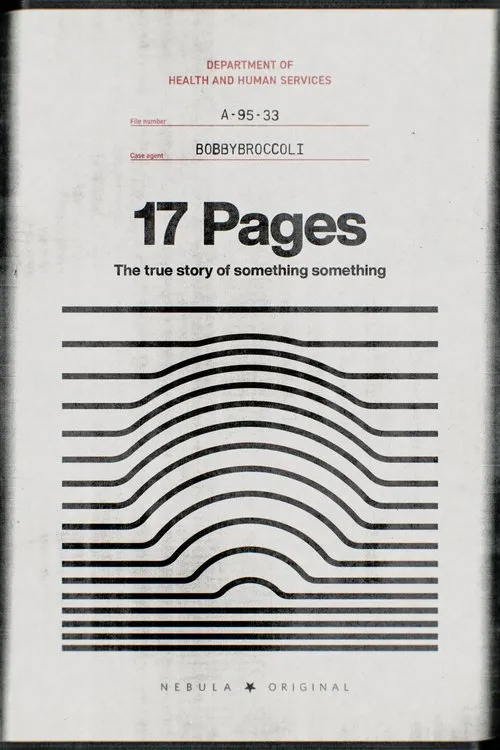17 Pages

Plot
17 Pages is a 2011 American drama film directed by Mahesh Mathai. The film is based on a real-life incident and takes a glimpse into the world of academic research, where a scientific paper has the power to spark controversy and change lives. The movie centers around a congressional inquiry, probing into whether or not a scientist has committed misconduct by falsifying his findings. The film begins with a scientist named Dr. Paul Lauterbur, played by Jeff Garlin, who has just been awarded the Nobel Prize for his groundbreaking research in the field of magnetism and imaging. However, when 17 pages of his previously published research are found to be incorrect and intentionally altered, a congressional inquiry is launched to investigate the allegations of misconduct. The story takes a toll on Dr. Lauterbur as well as his family. The media frenzy surrounding the inquiry affects their lives and reputations. As the investigation unfolds, the team of congressmen assigned to it discovers the complexity of the case, where bias and influence begin to play a significant role in the way evidence and testimony are interpreted. The film highlights the dangers of assumption and the blurring of lines between fact and fiction. It portrays how, in the heat of the moment, emotions and preconceived notions can cloud judgments, ultimately affecting the outcome of the investigation. The 17 pages at the heart of the controversy soon become the focal point of a far larger issue, where it becomes apparent that the way the scientific community and the media react to such incidents will set a precedent for future cases. Throughout the investigation, we see the congressmen questioning Dr. Lauterbur and his colleagues. The witnesses provide conflicting accounts of events, and the team faces challenges in separating fact from fiction. As the scrutiny intensifies, the stakes rise, and the lives of Dr. Lauterbur and his loved ones are put on the line. One of the most significant factors that emerges during the inquiry is that the paper's findings were revolutionary in their implications and the scientific community was eager to see its results confirmed. Many scientists were invested in the research and its outcomes, and their enthusiasm began to cloud their judgments. This created an environment where evidence and testimony were not scrutinized objectively but instead influenced by preconceived notions of what the results should look like. The congressional inquiry's approach was also criticized for its biases. The team assigned to the case did not have all the necessary scientific background to fully comprehend the material at hand, leading them to rely heavily on the opinions of experts who may not have been objective in their assessments. As a result, the investigation was not thorough, and the outcome was compromised by external pressures and influences. The film highlights the importance of scientific integrity and the responsibility that accompanies groundbreaking research. Dr. Lauterbur's mistakes serve as a warning to scientists about the importance of rigorous protocols and transparent methodologies. Furthermore, the incident emphasizes the need for impartial investigations, which take into account the complexities and intricacies of scientific research. The movie portrays the consequences of a mismanaged investigation, where the outcome can have far-reaching implications. In this case, the congressional inquiry did not lead to a clear verdict on whether or not Dr. Lauterbur committed misconduct. Instead, it exposed the flaws in the system and the risks associated with biased decision-making. As a consequence, the incident led to a reevaluation of how misconduct investigations should be conducted. It also raised awareness about the potential for bias in such probes and the importance of having experts who truly understand the science and the context of the research. In the end, the film leaves the viewer with a thought-provoking message about the importance of objectivity, integrity, and thoroughness in scientific inquiry.
Reviews
Recommendations




